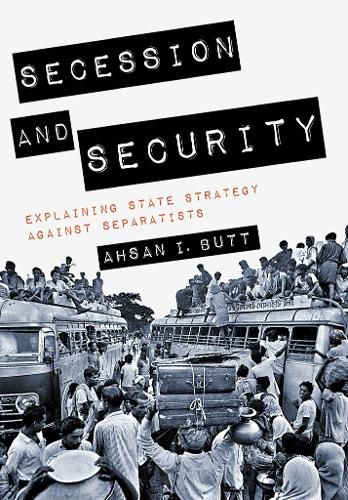Readings Newsletter
Become a Readings Member to make your shopping experience even easier.
Sign in or sign up for free!
You’re not far away from qualifying for FREE standard shipping within Australia
You’ve qualified for FREE standard shipping within Australia
The cart is loading…






In Secession and Security, Ahsan I. Butt argues that states rather than separatists determine whether a secessionist struggle will be peaceful, violent, or genocidal. He investigates the strategies, ranging from negotiated concessions to large-scale repression, adopted by states in response to separatist movements. Variations in the external security environment, Butt argues, influenced the leaders of the Ottoman Empire to use peaceful concessions against Armenians in 1908 but escalated to genocide against the same community in 1915; caused Israel to reject a Palestinian state in the 1990s; and shaped peaceful splits in Czechoslovakia in 1993 and the Norway-Sweden union in 1905.
Butt focuses on two main cases-Pakistani reactions to Bengali and Baloch demands for independence in the 1970s and India’s responses to secessionist movements in Kashmir, Punjab, and Assam in the 1980s and 1990s. Butt’s deep historical approach to his subject will appeal to policymakers and observers interested in the last five decades of geopolitics in South Asia, the contemporary Israeli-Palestinian conflict, and ethno-national conflict, separatism, and nationalism more generally.
$9.00 standard shipping within Australia
FREE standard shipping within Australia for orders over $100.00
Express & International shipping calculated at checkout
In Secession and Security, Ahsan I. Butt argues that states rather than separatists determine whether a secessionist struggle will be peaceful, violent, or genocidal. He investigates the strategies, ranging from negotiated concessions to large-scale repression, adopted by states in response to separatist movements. Variations in the external security environment, Butt argues, influenced the leaders of the Ottoman Empire to use peaceful concessions against Armenians in 1908 but escalated to genocide against the same community in 1915; caused Israel to reject a Palestinian state in the 1990s; and shaped peaceful splits in Czechoslovakia in 1993 and the Norway-Sweden union in 1905.
Butt focuses on two main cases-Pakistani reactions to Bengali and Baloch demands for independence in the 1970s and India’s responses to secessionist movements in Kashmir, Punjab, and Assam in the 1980s and 1990s. Butt’s deep historical approach to his subject will appeal to policymakers and observers interested in the last five decades of geopolitics in South Asia, the contemporary Israeli-Palestinian conflict, and ethno-national conflict, separatism, and nationalism more generally.